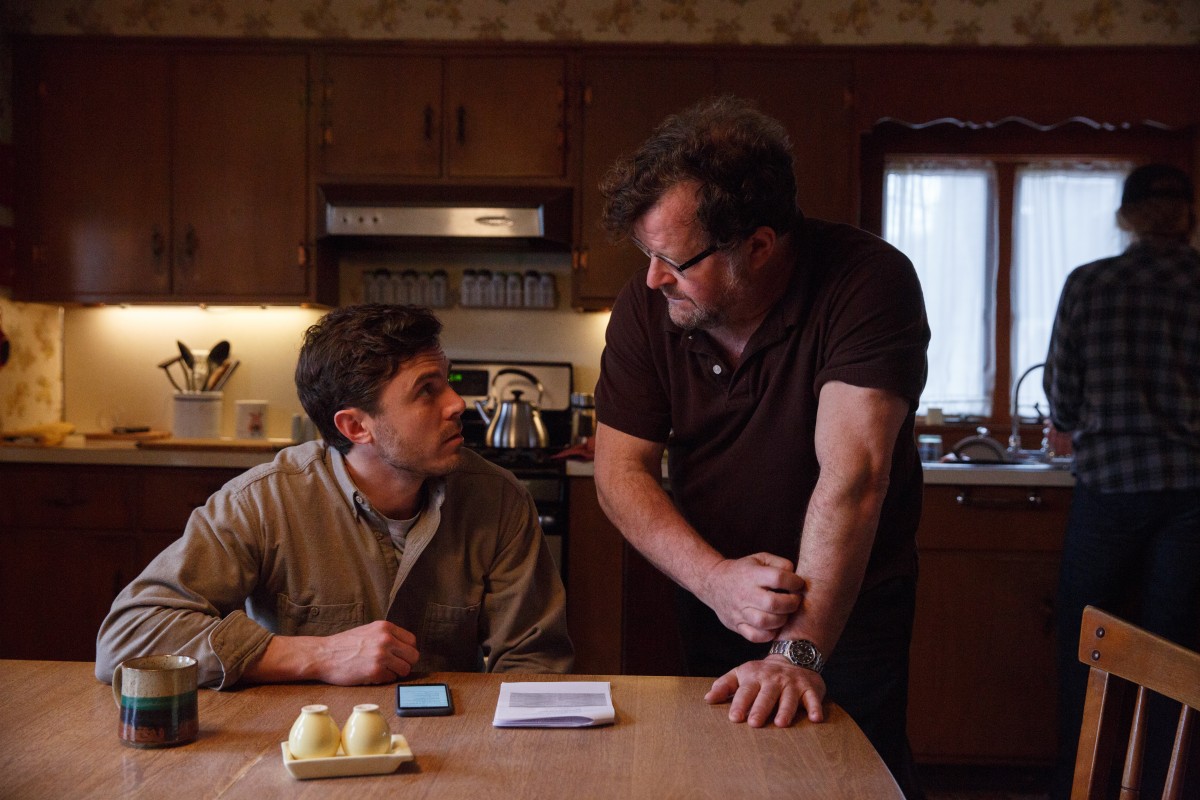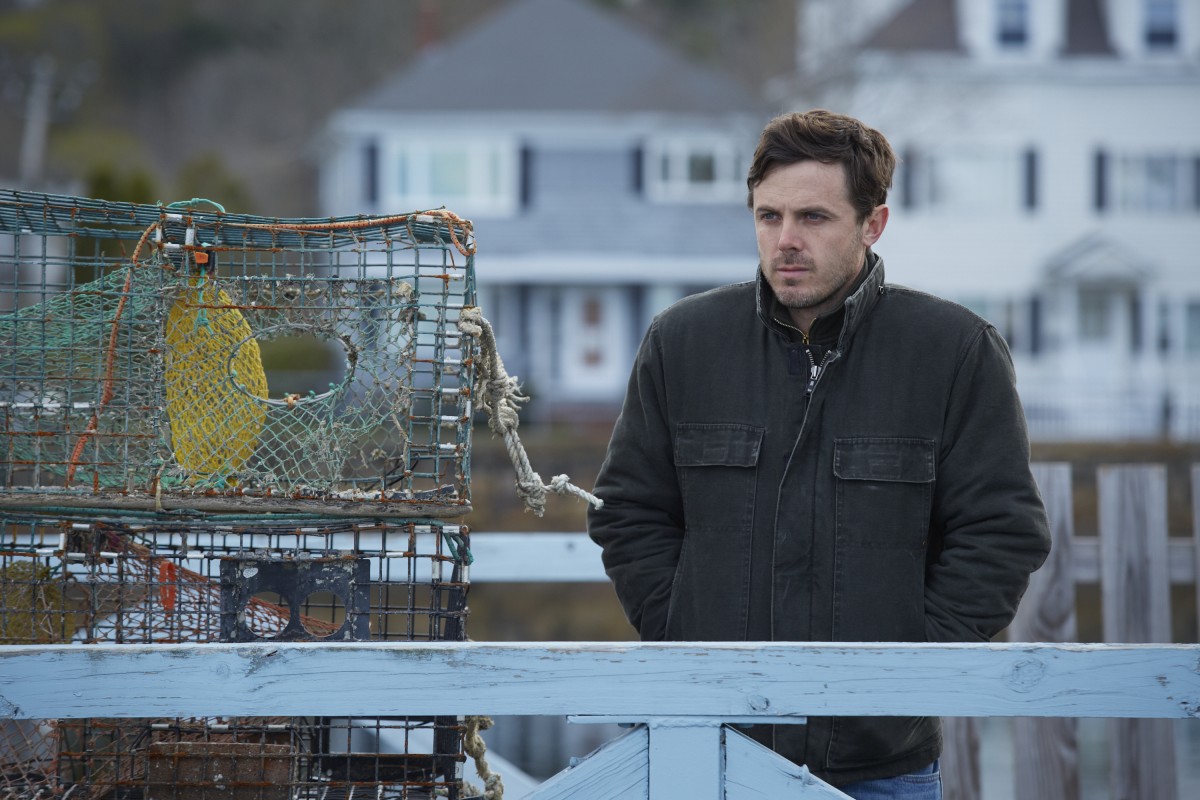Manchester by the Sea Director Explains Hollywood’s Obsession with New England

Photo by Claire Folger, / Amazon Studios / Roadside Attractions
Whether it’s gangster flicks like The Departed or ensemble projects like Spotlight, films set in New England or the Boston area have recently dominated the awards circuit, and this year is no exception. Leading the crop of 2016 contenders is Manchester by the Sea, a heartbreaking family drama written and directed by Kenneth Lonergan. In addition to being shot on location in the Massachusetts town, the film is filled with local flavor, from star Casey Affleck to producers Matt Damon and John Krasinski. Ahead, Lonergan explains Hollywood’s current obsession with New England, why he loved working with Affleck, and more.
What was your approach to crafting such a complex and melancholy character like Affleck’s Lee Chandler?
I’m always just looking for a vivid idea for all the characters, especially the lead character. Once I have it, then I’m just trying to let the material write itself. When you bring the actors on board, they always have so many ideas and you try to find a way to fit their ideas with what’s in the script. And with Casey, that was really easy because we have a very, I think, similar approach to the material and similar approach to working. We really like talking about who he is and what he’s doing, why he’s doing it, and why he does this instead of that. I think the single most enjoyable part of shooting that film was working with Casey.
How would you say Manchester influences Lee as a character or contributes to how he sees the world?
It’s a pretty wealthy town with a working-class port community that repairs and fixes a lot of the boats, plows the snow, and people are trying to cobble out a living with a decimated fishing industry. His brother, I think, is someone whose been successful doing that. My idea about Lee was that he wasn’t that kind of guy. He was just more of a regular guy and he worked for his brother essentially. And I always saw his brother, who was played by Kyle Chandler, as kind of being the patriarch of the family in a way. But one thing that’s pertinent to the story is that it’s like a lot of families up there. You know their family’s been there a long time and their grandfather, who you see in a couple of the flashbacks, was probably a fisherman on a boat. That is very hard to make a living nowadays just doing that. But so many people up there, that’s who their grandparents or great-grandparents were, then they live in the house built by their grandfather. Learning about all that and thinking of the character in those terms, even if all that is not directly in the story, it feeds and supports the story.

Photo by Claire Folger, / Amazon Studios / Roadside Attractions
Over the past few years, it seems like a lot of buzz-worthy films have been set in New England or the Boston area. Why do you think filmmakers like shooting here?
It’s an area that’s really retained its identity. A lot of the country has been homogenized and, you know, huge sections of it–even big cities–have been turned into replicas of each other. Boston and Massachusetts have resisted that. And the personality is so strong and so specific, it’s really, it’s one of the places, especially up at the North Shore, where the only chain they allow in there is Dunkin’ Donuts. You know, I think the chain store phenomena and letting other architects come in and redesign your cities and giving cities over to construction, it just flattens everything out and makes everything the same. And you know Boston is Boston. It’s hard to eradicate that flavor, it’s very strong. And I think it’s great. There’s just a lot of this urban sprawl all over the place in New York and the Midwest and even in Massachusetts. But I think places like Boston really retain their identity because they have such a strong identity. I don’t know why that is, but I’m glad it’s so.
Considering how hard it is to get non-superhero movies made these day, was it nice to have people like Damon and Affleck behind this project? Did you guys rely on each other whenever the process got frustrating?
Very much so. I mean, Matt and Casey are both really supportive. They’re both really experienced. They’re both people who generate their own projects a lot of the time or are involved in generating their own projects. I’ve only done three movies, and I’ve had a fairly easy time getting each of them made. I never had to go through an extended struggle finding financing for any of the movies, and that’s owing to the generosity and guts of the people who paid for them. But that’s not because I’m so special, it’s just because they’re smaller movies and they’re sometimes very hard to get financed, but I haven’t had that problem so far. Matt and Casey were not just helpful when we talked about budgets, how we’re going to shoot it on film or on digital, and all this stuff. I would get very confused and overwhelmed and Casey would be like, “Look, they can’t afford to pay for that but they can afford to pay for this, so let’s ask for this,” and I said, “Ok.” He was really in my corner the whole time and Matt was too, and with great expertise, so it was incredibly helpful.
You had a tough time trying to bring your last film, Margaret, to the big screen. Was it a cathartic experience to move on to Manchester by the Sea?
I actually don’t remember when in time the two projects intersected. Margaret, I was able to do the extended cut of the DVD in 2012 and I was really happy about that. By that time my film had been seen and liked by people, especially Boston film critics, who were really helpful in getting the film paid attention to. So I was really actually happy with the way that turned out. I don’t really remember when Matt and John came to me with this idea, but it was not like they visited me in my hospital room. I just liked the idea and it seemed like something I would want to write. I had been looking for something to do, so I thought it seemed like a good project to get on board with. Plus, Casey, Matt, and I had talked about doing something for quite a while. Pretty much ever since we met in 2002 and, one thing after another, you know, this project. And Matt was in Margaret, so it just seemed like a natural direction to go.
Manchester by the Sea opens in Boston on November 18.
This interview has been edited and condensed.

